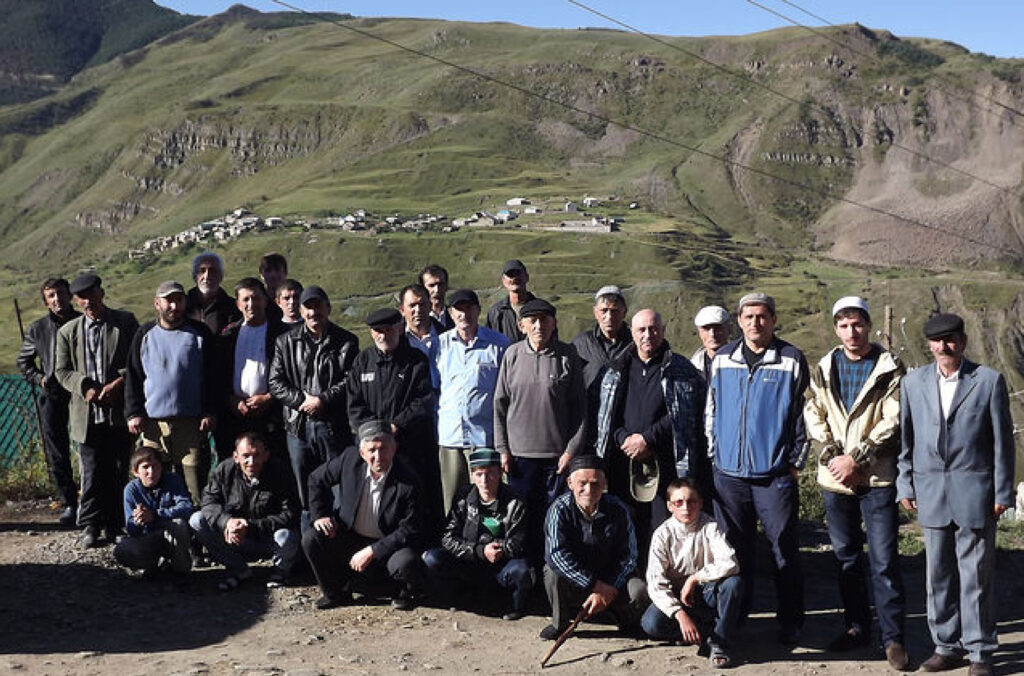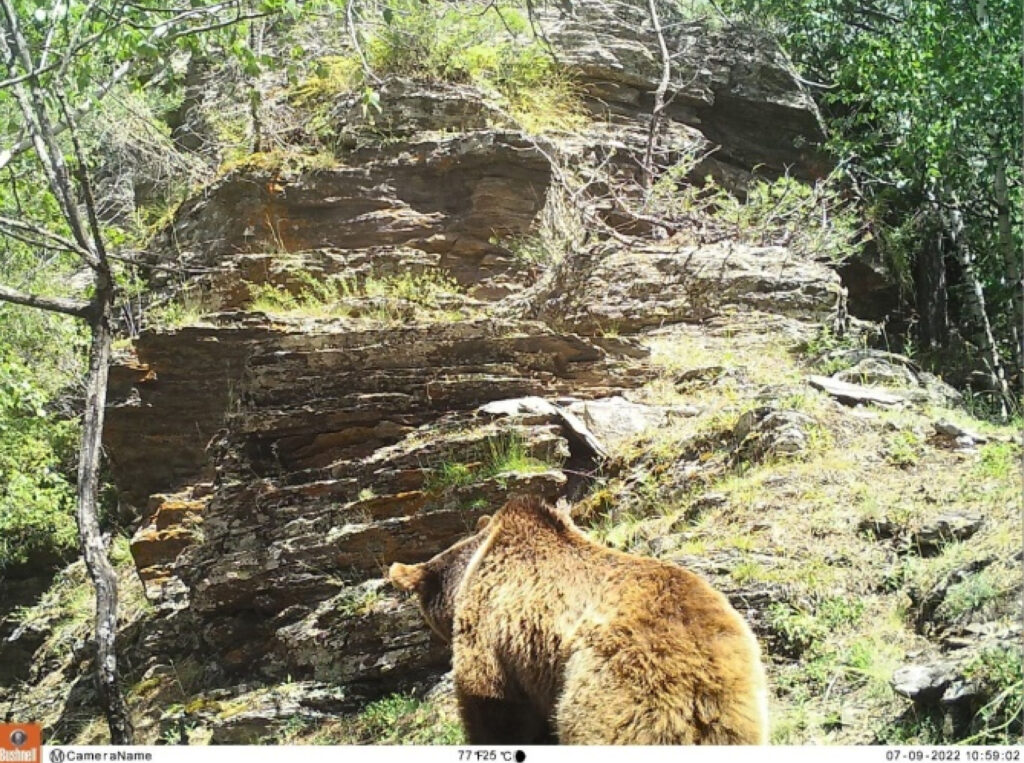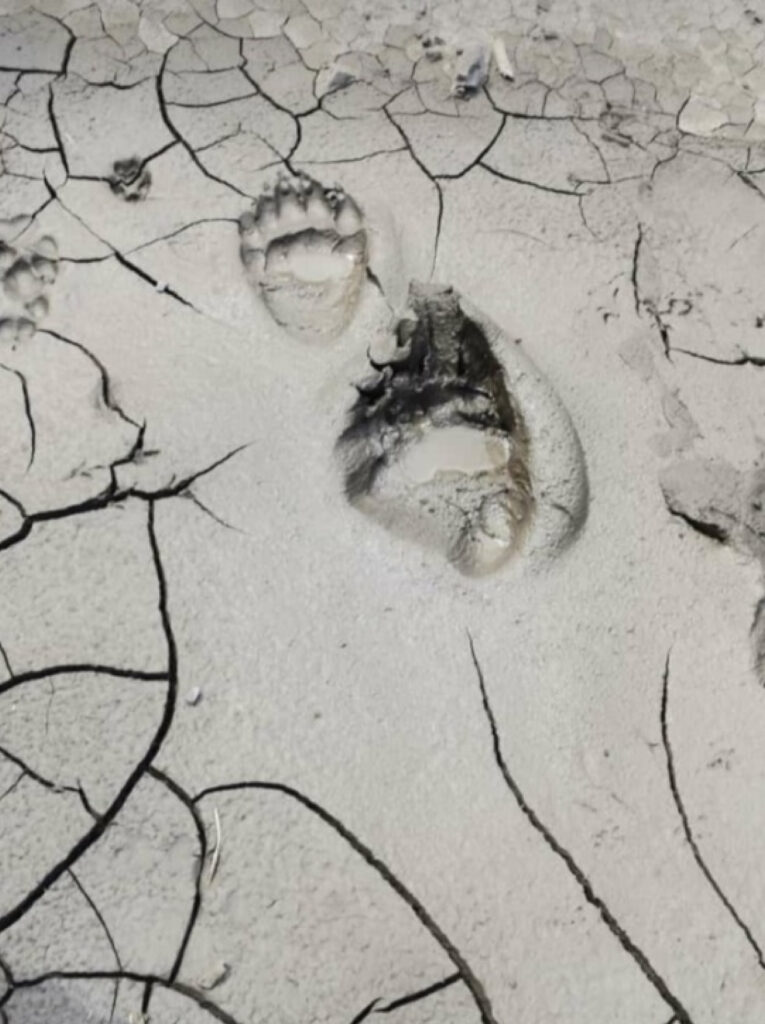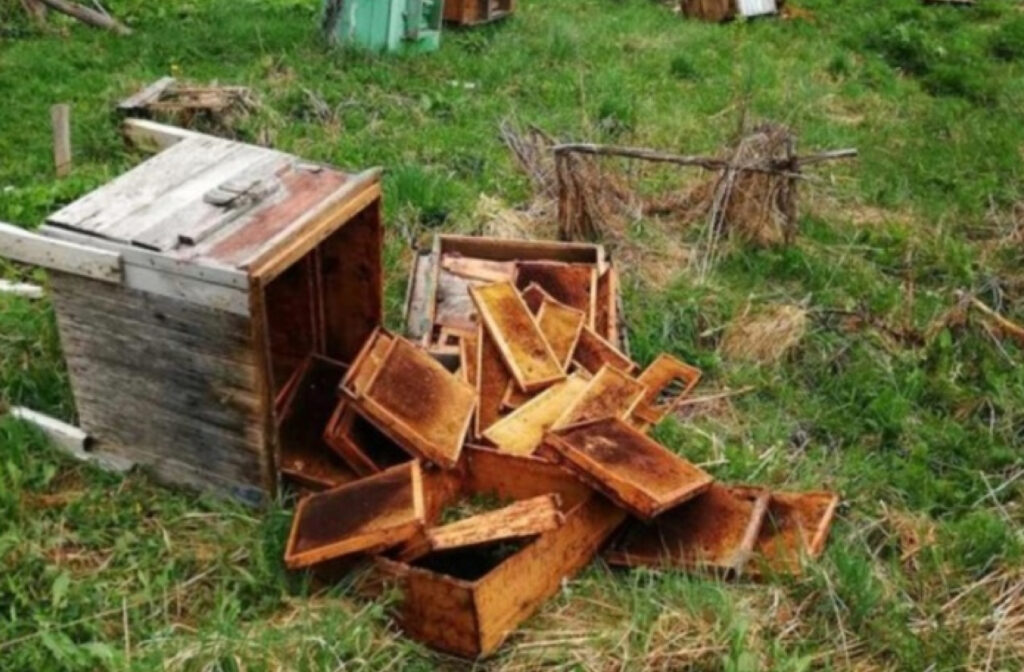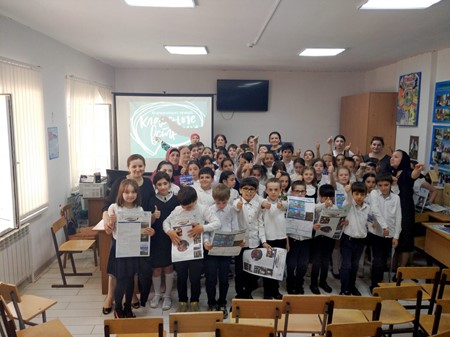This project started in 2020, focusing on the local population of Brown bears in the Dagestan mountains. Emphasis was laid on occurence and distribution of bears in Tsunta and Tlarata districts, south-western part of the Republic of Dagestan, confined to the northern slopes of the Great Caucasus Ridge. Human-Bear Conflict assessments were carried out and between 2020-2021 a total of 153 cases were registered. Mainly involved depredation on sheep. A year later, the total number increased to 171 cases.
One of the objectives is involving local people in the bear conservation program. The team was able to attract 18 locals, assisting mainly in anti-poaching activities. They were trained by gamekeepers of three local reserves. They collected information on possible poachers in villages of the study area. For nine months, anti-poaching teams detained 35 poachers who had no licenses to hunt and collected 59 illegal traps. 9 criminal and 41 administrative cases were opened, 11 fines issued and 14 arms confiscated. A year later, between 2021-2022, the anti-poaching teams arrested 75 poachers who were involved in illegal hunting activities. 15 criminal and 136 administrative cases were opened, 27 fines issued and 30 arms were confiscated.
Awareness raising is an important component of this project. The team use posters, guidebooks, school visits, leaflets, pictorial guides and community meetings to explain what they are doing and why. The main focus of these activities is to provide information about bears and other carnivore activities, their role in nature and possible competition with domestic livestock and accurate identification of killed livestock, so that people are able to distinguish depredation from other cause of loss, and can identify the species concerned so that the team can help them implement the most relevant methods to prevent further losses. In 2020, the team rolled-out the education program for 1,400 people, including; 800 school boys & girls, 600 adults. Involving of local people in the project is key objective of the project! Between 2021-2022, 1,700 people were reached in the education program; 1,000 school kids and 700 adults.
